CFCS Research Areas
Proactive Visual Computing & Learning
Visuals represent the main channel through which humans, or their robotics agents, understand and maneuver through their living environment and interact with each other. As such, many visual computing and learning technologies and devices have been developed and applied in emerging applications, such as autonomous systems, augmented reality, robotics manipulation and digital production. A research trend has been introducing proactive sensing and learning, from which agents progressively interact with outside to improve the capability of sensing and recognition.
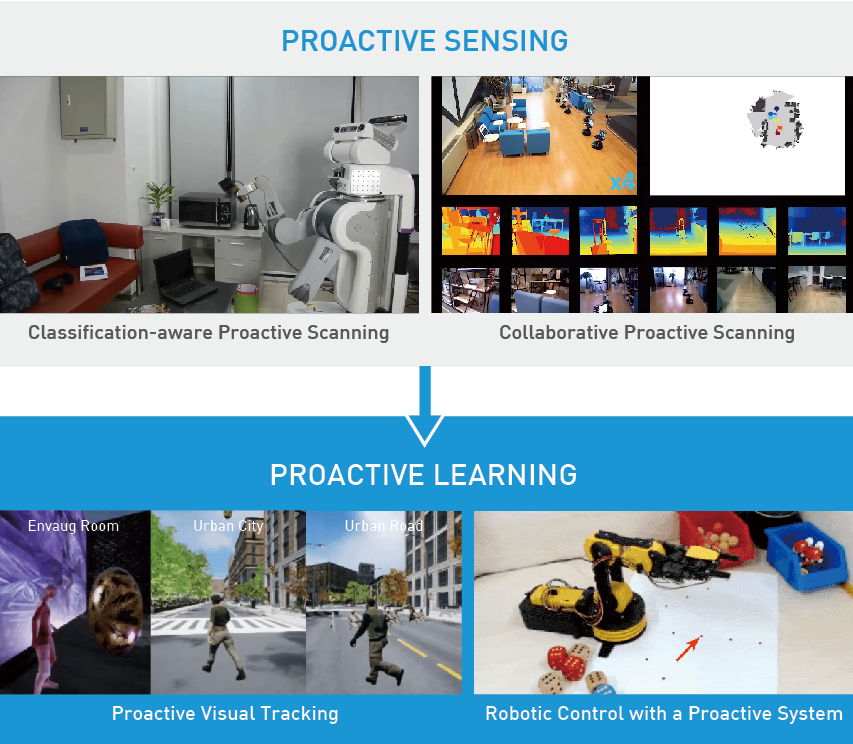
Selected Publications
- Xiangyu Kong, Bo Xin, Yizhou Wang, Gang Hua, “Collaborative Deep Reinforcement Learning for Joint Object Search,” IEEE Conference on Computer Vision and Pattern Recognition (CVPR), Honolulu, USA, July 21-26, 2017.
- Tianyang Zhao, Yifei Xu, Mathew Monfort, Wongun Choi, Chris Maker, Yibiao Zhao, Yizhou Wang, Yingnian Wu, "Multi-Agent Tensor Fusion for Contextual Trajectory Prediction," IEEE Computer Society Conference on Computer Vision and Pattern Recognition (CVPR), Long Beach, USA, June 16-20, 2019.
- Yingming Zuo, Weichao Qiu, Lingxi Xie, Fangwei Zhong, Yizhou Wang, Alan Yuille, "CRAVES: Controlling Robotic Arm With a Vision-Based Economic System," IEEE Computer Society Conference on Computer Vision and Pattern Recognition (CVPR), Long Beach, USA, June 16-20, 2019.
- Wenhan Luo, Peng Sun, Fangwei Zhong, Tong Zhang, Yizhou Wang, "End-to-end Active Object Tracking and Its Real-world Deployment via Reinforcement Learning," IEEE Transactions on Pattern Analysis and Machine Intelligence (TPAMI), Vol. 22, No. 6, pp. 1634-1646, June 2020.
- Siyan Dong, Kai Xu, Qiang Zhou, Andrea Tagliasacchi, Shiqing Xin, Matthias Nießner, Baoquan Chen, "Multi-Robot Collaborative Dense Scene Reconstruction," ACM Transactions on Graphics (TOG), Vol. 38, No. 4, pp. 84: 1-16, July 2019.
Computational Economics
We are interested in the interdisciplinary research of computer science, economics, and social science in general. Our interests include social economic science, large market design, equilibrium computation, multi-agent Information system, block-chain economics. We focus on building general methodologies and systems with cutting-edge technologies from game theory, cryptography, information theory, machine learning, statistics, randomized algorithms and social economic theory.
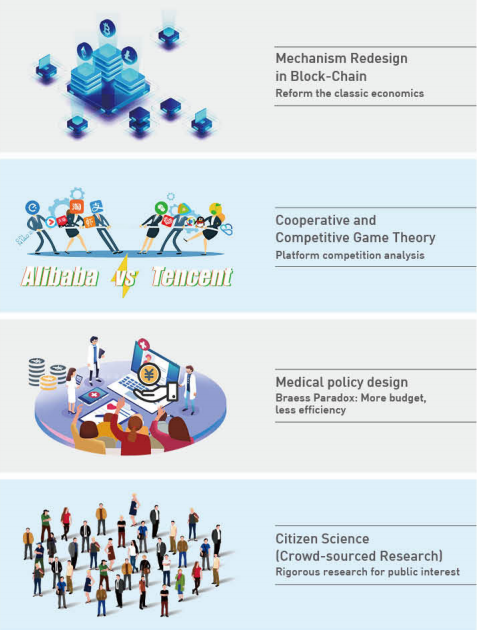
Selected Publications
- Yuqing Kong, "Dominantly Truthful Multi-task Peer Prediction with a Constant Number of Tasks," ACM-SIAM Symposium on Discrete Algorithms (SODA), Salt Lake City, USA, January 5-8, 2020.
- Xiaotie Deng, Tao Lin and Tao Xiao, "Private Data Manipulation in Optimal Sponsored Search Auction," the Web Conference (WWW), Taipei, April 20-24, 2020.
Intelligent Interactive Computing
Intelligent Interactive Computing studies new computer science theory and technology to improve the collaboration effectiveness between human, intelligent agent (robot, software) and environment. By building the bridge between different subjects, developing interdisciplinary research areas to serve the country needs such as healthcare, intelligent manufacturing, economics and network security, and to improve the daily life of the citizen, such as smart city, entertainment, arts and humanities.
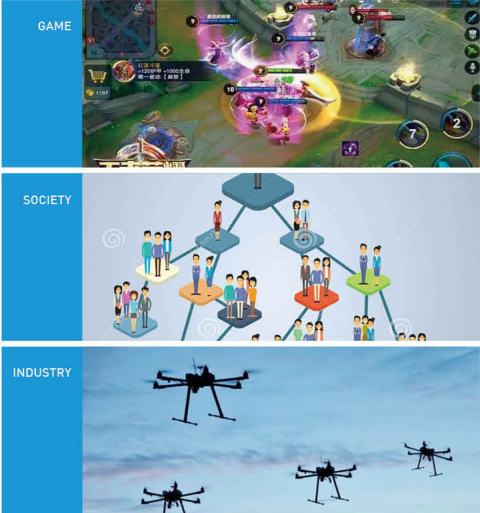
Selected Publications
- Fangwei Zhong, Peng Sun, Wenhan Luo, Tingyun Yan, Yizhou Wang, "AD-VAT+: An Asymmetric Dueling Mechanism for Learning and Understanding Visual Active Tracking," IEEE Transactions on Pattern Analysis and Machine Intelligence (TPAMI), 2019.
- Jing Li, Jing Xu, Fangwei Zhong, Xiangyu Kong, Yu Qiao and Yizhou Wang, "Pose-Assisted Multi-Camera Collaboration for Active Object Tracking," the Thirty-Fourth AAAI Conference on Artificial Intelligence (AAAI), New York, USA, February 7-12, 2020.
- Yunhai Wang, Mingliang Xue, Yanyan Wang, Xinyuan Yan, Baoquan Chen, Chi-Wing Fu, Christophe Hurter, "Interactive Structure-aware Blending of Diverse Edge Bundling Visualizations," IEEE Transactions on Visualization and Computer Graphics (TVCG), Vol. 26, No. 1, pp. 687-696, January 2020.
Quantum Computing
Quantum computing is an interdisciplinary field of computer science, information theory, and quantum physics, providing a novel and more powerful mechanism for processing information and realizing computation. A quantum computer could be useful for solving classically intractable problems such as chemistry, combinatory optimization, factoring, etc.
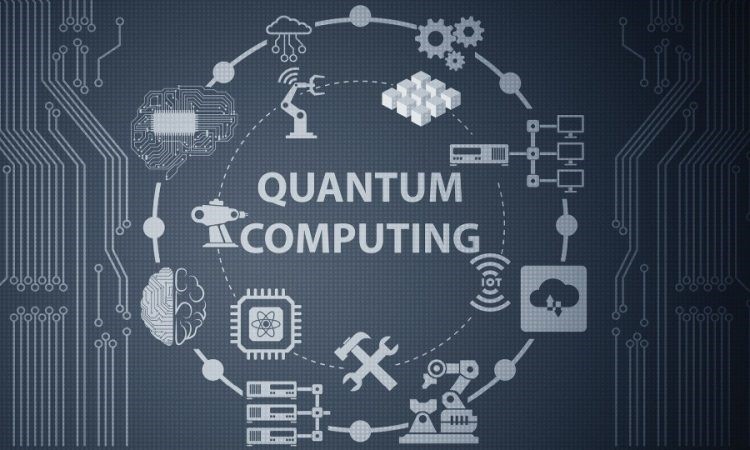
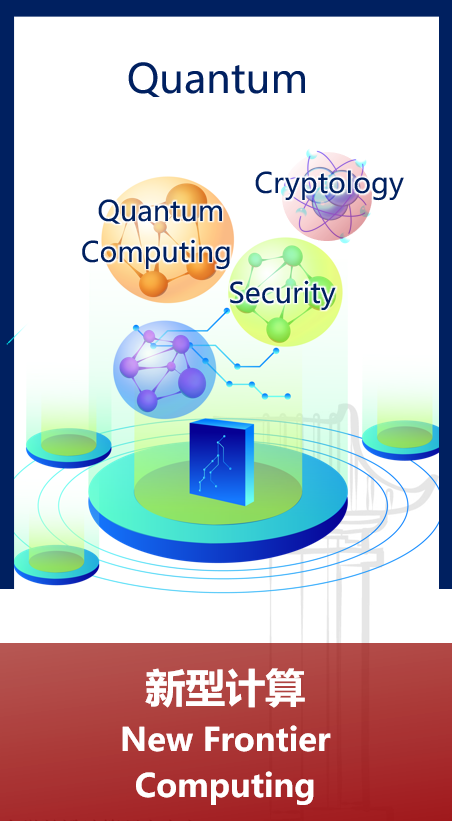
Selected Publications
- Jinzhao Sun, Xiao Yuan, Takahiro Tsunoda, Vlatko Vedral, Simon C. Benjamin, Suguru Endo, "Mitigating Realistic Noise in Practical Noisy Intermediate-Scale Quantum Devices," Physical Review Applied, Vol. 15, No. 3, 034026 (2021) , March 9, 2021.
- Suguru Endo, Zhenyu Cai, Simon C. Benjamin, Xiao Yuan, "Hybrid Quantum-Classical Algorithms and Quantum Error Mitigation," Journal of the Physical Society of Japan , Vol. 90, No. 3, 032001 (2021) , February 1, 2021.
-
Pengfei Wang, Chun-Yang Luan, Mu Qiao, Mark Um, Junhua Zhang, Ye Wang, Xiao Yuan, Mile Gu, Jingning Zhang, Kihwan Kim, "Single Ion Qubit with Estimated Coherence Time Exceeding One Hour," Nature Communication, Vol. 12, pp. 233, January 2021.





